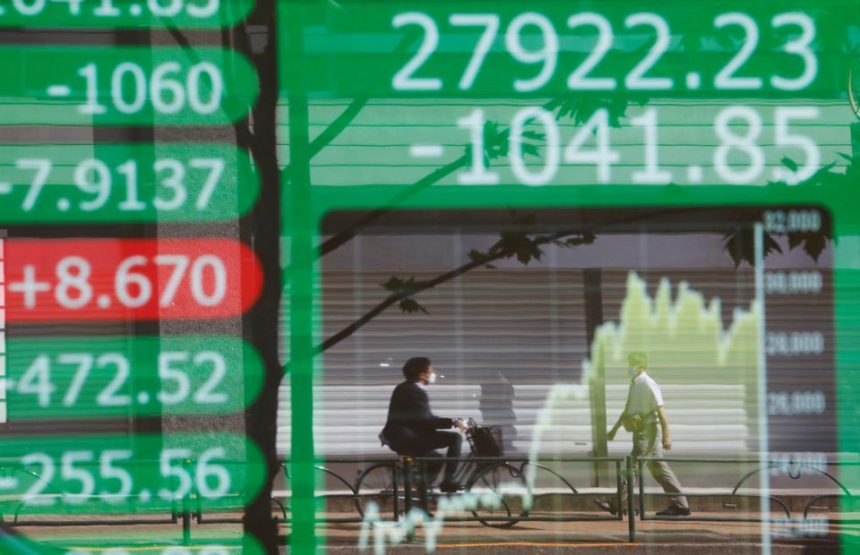Asian Stocks jump on US GDP data released yesterday on Friday as interest in risky assets increased as a result of stronger than anticipated U.S. economic growth figures. Data released overnight revealed that the largest economy in the world expanded greater than anticipated in the fourth quarter, allaying some fears of an impending recession. Strong gains were consequently produced on Wall Street, which then spread to Asia.
The best-performing index for the day was the KOSPI in South Korea, which increased by about 1%. Indonesian equities paced advances in Southeast Asia with a 0.7% increase. As local producer price index inflation appeared to have slowed through to the fourth quarter, potentially easing consumer prices, Australia’s ASX 200 index also increased by 0.5%.
The selling in shares of companies within the Adani Group began on Thursday following a market holiday, which caused a decline in the Nifty 50 and BSE Sensex 30 indices of India of around 0.7% and 1%, accordingly. Asserting that Hindenburg Research’s claims of deception and price fixing were false, the conglomerate threatened legal action against short seller.
After data revealed that inflation in the nation’s capital increased more than anticipated in January, Japan’s Nikkei 225 index likewise underperformed its rivals for the day, gaining less than 0.1%. The data often predicts an identical trajectory in the national CPI inflation rate, which is now running at a 41-year record and far above than the Bank of Japan’s annual 2% aim.
Uncertainty regarding the BOJ’s monetary policy goals has dimmed the outlook for Japanese markets. Although the BOJ’s ultra-accommodative posture is likely to end eventually due to the country’s growing inflation, investors are uncertain of the exact timing of this change after the BOJ startled the market in its January meet.
The resumption of the Chinese markets following a weeklong break and the Federal Reserve meeting the following week are now the main concerns for the larger Asian markets.









